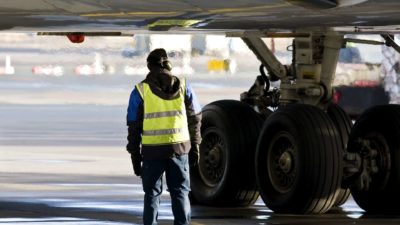The Qantas Airways Limited (ASX: QAN) share price is taking off today, up 7.9%.
Qantas shares closed yesterday trading for $4.54 each and are currently at $4.90.
Investors are bidding up shares of the flying kangaroo after the airline released its full-year results this morning for the 12 months ending 30 June (FY22).
While those results reflected another difficult year, with a statutory loss after tax of $860 million, that loss was down 49% from the prior year.
Also likely providing some tailwinds for the Qantas share price was its announcement of an on-market share buyback.
What share buyback did the airline announce?
Management stated they have approved an on-market share buyback of up to $400 million "as the benefits of the recovery materialise".
"This is the first return to shareholders since 2019 and follows $1.4 billion of equity raised at the start of the pandemic," the airline said
With today's big leap in the Qantas share price factored in, the airline has a market capitalisation of $9.2 billion. That means the share buyback represents more than 4% of its market cap.
Investors may also have picked up on some bullish words by CEO Alan Joyce.
"We always knew travel demand would recover strongly but the speed and scale of that recovery has been exceptional," he said.
"We're even more confident in the future than we were six months ago, so today we're announcing more investment in our people and our customers, including a major boost to staff travel benefits, new routes and new lounges."
There were no dividends again this year. Qantas last paid a dividend on 23 September 2019, when the world had yet to hear of COVID, let alone experience global lockdowns.
But Joyce addressed the $400 million share buyback, saying, "We're also announcing the first capital return for shareholders since they provided us $1.4 billion at the start of the pandemic to support our Recovery Plan."
Qantas share price snapshot
With today's big lift factored in, the Qantas share price has again climbed into positive territory for the past 12 months, up a slender 1.4%.
Still, that handily beats the 6% full-year loss posted by the S&P/ASX 200 Index (ASX: XJO).








